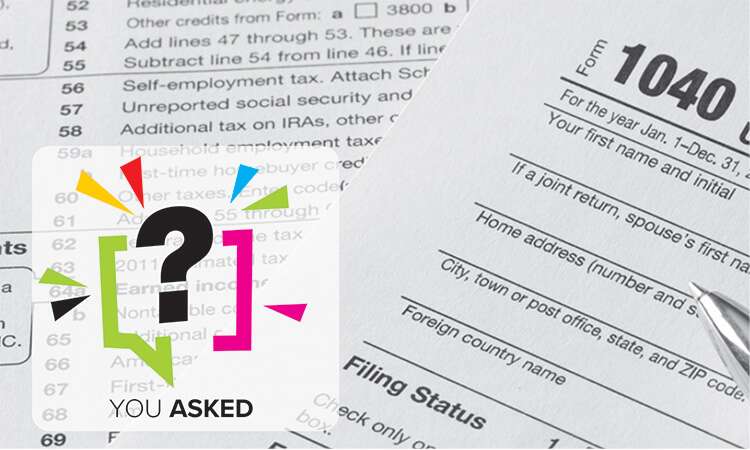

Tax time can bring up various feelings in the massage therapy business, just like it does for owners of other small businesses when dealing with various accounting and financial tasks. You might be asking yourself many questions about your finances, such as whether or not you will be able to effectively manage the numbers this year despite having a full schedule with your clients. How will you allocate your time?
And finally, and this may be the most crucial question of all, how much money do you anticipate owing to the Internal Revenue Service (IRS) at the end of the year?
Like many other business owners, when it comes to anything having to do with the term tax, your eyes start to roll. Relax and take a deep breath. Deductions are actually quite comforting. Recognizing and utilizing all of the tax deductions accessible to you can significantly benefit your massage therapy business and reduce your tax liability.
Tax deductions allow business owners, including massage therapists, to “write off” expenses that have already been incurred. After deducting these expenses from your annual earnings, you pay taxes on the remaining.
Where can you find these expenses? I’m glad you asked. These expenses are located on your Profit and Loss Statement (Income – Expenses = Net Income). The amount of tax you owe is based mainly on your net income.
To pay fewer taxes at the end of the year, or quarterly, you could take advantage of tax deductions to reduce the amount of your income subject to taxation.
However, you must follow the rules of the IRS. It is the law. You cannot and should not be creative. No funny business, no bad bookkeeping or accounting!
In principle, a cost is tax deductible if it fits the framework stated by the IRS:
• You incurred the relevant expenditure as a result of your profession
• The cost is typical, normal, or regarded as a cost of conducting a massage therapy service and required, appropriate or helpful for maintaining and developing your massage practice
• The deduction is supported by evidence (receipts and documentation) and fair anticipation that it is correct
To stay on the right side of the law with the IRS, it’s vital to understand which business expenses qualify as tax write-offs. The money from your business should be kept in a separate account from your personal funds. Comingling is strictly forbidden.
Let’s examine a few everyday expenses. These are crucial for anyone thinking about working in the massage therapy industry, whether as an independent contractor, business owner or sole proprietor:
• Registration and licensing fees. Renewal of licensing requirements and registration of your massage practice is deductible.
• Legal and professional fees. In the course of a massage therapist’s regular business activities, legal and professional fees are deductible. The cost of accountants, lawyers and others are included here. Only those costs directly traced back to your massage practice can be deducted.
• Insurance coverage. Insurance for liability and malpractice is deductible. Don’t skip this expense. You can’t do business without having insurance coverage. A great insurance plan should cover a broad range if you want to expand your massage therapy practice.
• Bank fees and charges. As long as it relates to your massage business, you can deduct bank and credit card fees and service, transfer, annual and overdraft fees from your business’s earnings.
• Tax expenses. State income taxes, personal property taxes, payroll taxes and real estate taxes paid on commercial property are all deductible.
• Office rental fees and utilities. When operating a private massage practice, you can deduct the cost of rent and utilities from your taxable income. But if you manage your massage practice out of your home and split your utilities between work and home, that’s a different story. You can only take a tax break for the part of your usage that is related to your business.
• Supplies. You can take a tax deduction for things like printer ink, scissors, staplers, small pieces of furniture and sanitary supplies. Don’t forget that massage tables, chairs, oils and lotions can all be written off.
• Cost of depreciation. Electronics and furnishings are typical write-offs for therapists. You can deduct these expenses all at once or in installments throughout the years you use the items.
• Marketing. You can also write off the money you spent on advertising your services. Offline and online promotional materials include business cards, marketing materials, online advertising, digital lead generation and email marketing services.
• Budget for professional development. Massage therapists are lifelong students! Many people interested in massage therapy seek to deepen their education by enrolling in seminars, workshops and conferences. Guess what? You can deduct the amount you spend on these activities.
• Meals for business. You can subtract the expense of business lunches with clients and consultants and any other meals you buy for work-related purposes.
• Cost of business travel. You can write off your travel costs if your excursion or activity is strictly for business. The cost of transportation (vehicle, train, plane), lodging and food while on the road can all be counted as part of this category.
• Cost of staff. Expenses such as employee pay and benefits are also tax deductible.
The single most critical piece of advice is to keep all documents that can be used to verify the accuracy of the numbers on your profit and loss statements. Why? Because it’s better to be safe than sorry during an audit.
Next, hire a bookkeeper and develop a relationship with your tax accountant. You should not wait until April 15 to consult a tax professional, because each year brings a new set of rules on which expenses can and cannot be deducted.
Nor should you wait until the end of the year to get your financial records in order. In addition, your bookkeeper and tax accountant should coordinate their efforts to guarantee that your business’s financial records comply with IRS guidelines.
The cost of hiring a bookkeeper and a tax accountant outweighs the cost of paying penalties and interest for underpayment of taxes.

Lozelle Mathai, MBA, CFEI, is a financial accountant with over 18 years of experience in the field of financial management and accounting. She is the owner of Healthy Bodies of Finance, a division of Closing Your Books LLC. The Body of Accounting is an accounting consultancy firm that educates massage and bodywork business owners on how to manage, maintain and understand their business finances, including how to determine the best structure for their business.
The Massage Docs Provide Business Management Skills to Massage Therapists The Massage Docs, the founders and developers of the world-class business system for massage therapists,…
Massage Therapists Need Business Sense, Too The desire and drive to keep learning, even when your school days are long past,…